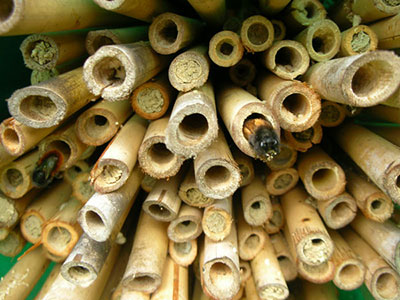IZS - Istituto Zooprofilattico Sperimentale Abruzzo e Molise
EFSA confirms the presence of new risks for bees due to neonicotinoid pesticides

The European Food Safety Authority (EFSA) has published a new risk assessments for three neonicotinoid pesticides - clothianidin, imidacloprid and thiamethoxam - currently subject to restrictions in the EU for harmful effects on bees. The EFSA’s Pesticides Unit, for the new study, carried out an in-depth research on wild bees (bumblebees, Bombus Latreille ; and solitary bees, Osmia, Osmia cornuta, Osmia bicornis, Megachile willughbiella, Anthidium manicatum, Chalicodoma muraria, M. centuncularis) and honey bees (Apis mellifera), to collect all the scientific evidence published since the previous evaluations of 2012.
The exposure of bees to pesticides was assessed via three routes:
- residues in bee pollen and nectar;
- dust drift during the sowing/application of the treated seeds;
- water consumption.
In addition, the research team used the guidelines developed by EFSA specifically for the risk assessment of pesticides and bees. From the very detailed conclusions, it is clear that: “There is variability in the conclusions, due to factors such as the bee species, the intended use of the pesticide and the route of exposure. Some low risks have been identified, but overall the risk to the three types of bees we have assessed is confirmed.” In the EU legislative system, EFSA acts as a scientific risk assessment body and does not take decisions about the authorization of regulated products, including pesticides. The regulatory decisions are taken by the European Commission and the National Authorities of the Member States, as risk managers and legislators.
At the beginning of May, Italy, together with 15 other EU countries (France, Germany, Spain, United Kingdom, the Netherlands, Austria, Sweden, Greece, Portugal, Ireland, Slovenia, Estonia, Cyprus, Luxembourg and Malta ), representing 76.1% of the EU population, approved the ban on the use of the three neonicotinoids pesticides.
The provision prohibits the use of these pesticides outdoor as they are responsible for increasing the mortality rate of pollinating insects; their use will be allowed only in the greenhouse. The ban will come into force at the end of the year. Further information is available on the following websites: